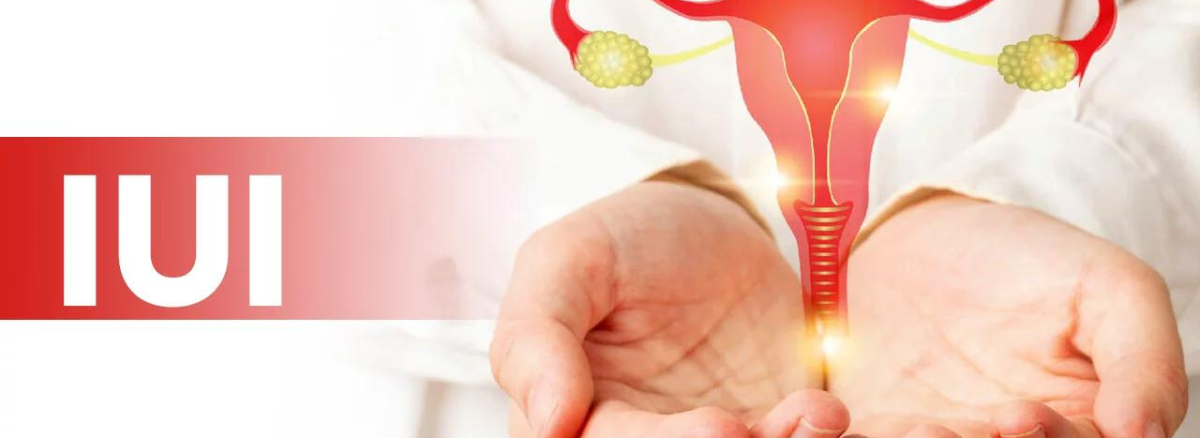Intrauterine insemination (IUI) is a simple procedure for introducing washed
sperm directly into the uterine cavity of the woman during ovulation to
enable conception to occur.
It is usually carried out in conjunction with medications [Clomid or
gonadotrophin] to increase the chances of ovulation occurring. In a few
cases, the client’s natural cycle is used and the IUI procedure is carried out
when natural ovulation occurs.
IUI aims to increase the number of motile sperm that reach the fallopian
tube and thus improve the chance of fertilization.
WOMEN WHO BENEFIT FROM IUI
IUI is recommended for couples with:
Mild male factor infertility
Couple with unexplained infertility
Women who have ovulation challenges
Teams who require sperm donation
Couples in a same-sex relationship
PREPARATION FOR IUI
IUI is an office procedure and couples are expected to be at the clinic 1
-2 hours before the scheduled time. The client would have had
ovulation induction before this and HCG injection.
While the procedure lasts a few minutes, sperm production and
preparation could last more than 1 hour. The semen is produced by the
male partner and handed over to the health personnel at the clinic for
sperm washing. In cases of male factor infertility where the male
semen is not suitable for use, donor sperm cells are used. The woman
should ensure she takes her HCG injection before coming to the clinic.
The IUI procedure occurs 34 – 36 hours after the HCG
injection.
PROCEDURE FOR IUI
A Cusco speculum is inserted into the vagina and the vagina is
cleaned with saline. The washed sperm is aspirated into a small plastic
IUI catheter is introduced through your cervix into your uterus. The
sperm is pushed and deposited gently into the uterus. The procedure
lasts only a few minutes.
COMPLICATIONS OF IUI TREATMENT
Ovarian hyperstimulation
Because drugs are used to stimulate the production of more follicles,
there is the risk of overstimulation of the ovaries by the gonadotropins
forming large cysts. Ovarian hyper-stimulation is very common in clients
with polycystic ovaries.
These cysts could rupture and leak out excessive fluid into the
peritoneal cavity of the abdomen resulting in weight gain, abdominal
pains and swelling, the passage of a small quantity of urine and
occasionally difficulty breathing. This problem usually occurs within one
week of HCG injection and in most cases resolves within 3 weeks.
This condition could be avoided by using a low dose of the medications
and monitoring the growth of the follicles in the ovaries during
stimulation with the transvaginal ultrasound scan. Despite this
precaution, some women still go ahead and develop ovarian
hyperstimulation.
Mild to moderate forms of the condition could be managed at home with
your doctor prescribing pain relief medications and encouraging you to
drink lots of fluid. Follow-up in the clinic is advised. Severe forms of
hyperstimulation may need drainage of some of the excess fluid that
collects inside the abdominal cavity to reduce the bloating and pain. It
usually allows the condition to resolve quicker and usually improves your
symptoms. In some cases, you may need to be hospitalized for proper
care and monitoring.
Multiple Pregnancies
Fertility treatment has increased the number of multiple pregnancies
including twins, triplets, quadruplets and so on. Clients who get
pregnant with more than one fetus at a time run an increased risk in
the pregnancies for both mother and babies.
These risks include:
Fetal Challenges
1. Risk of miscarriage in any of the trimesters
2. Premature birth before 37 completed weeks
3. Birth defects in one or more babies
Maternal Challenges
1. Pregnancy-induced hypertension
2. Pregnancy-induced Diabetes
3. Risk of having a cesarean section
4. Antepartum or postpartum haemorrhage
FOLLOW-UP
2 weeks after the IUI procedure you will be expected to come in for a
serum pregnancy check.
However, we note some women will commence their menses before
this time indicating the procedure was not a success.
One week after the HCG administration, you may be instructed to visit
the physician for an " ovary check." This is to ensure that the ovaries
have not over-responded. This visit is not always necessary.
Women who get pregnant are counseled to see their healthcare personnel
for further advice and counseling.

